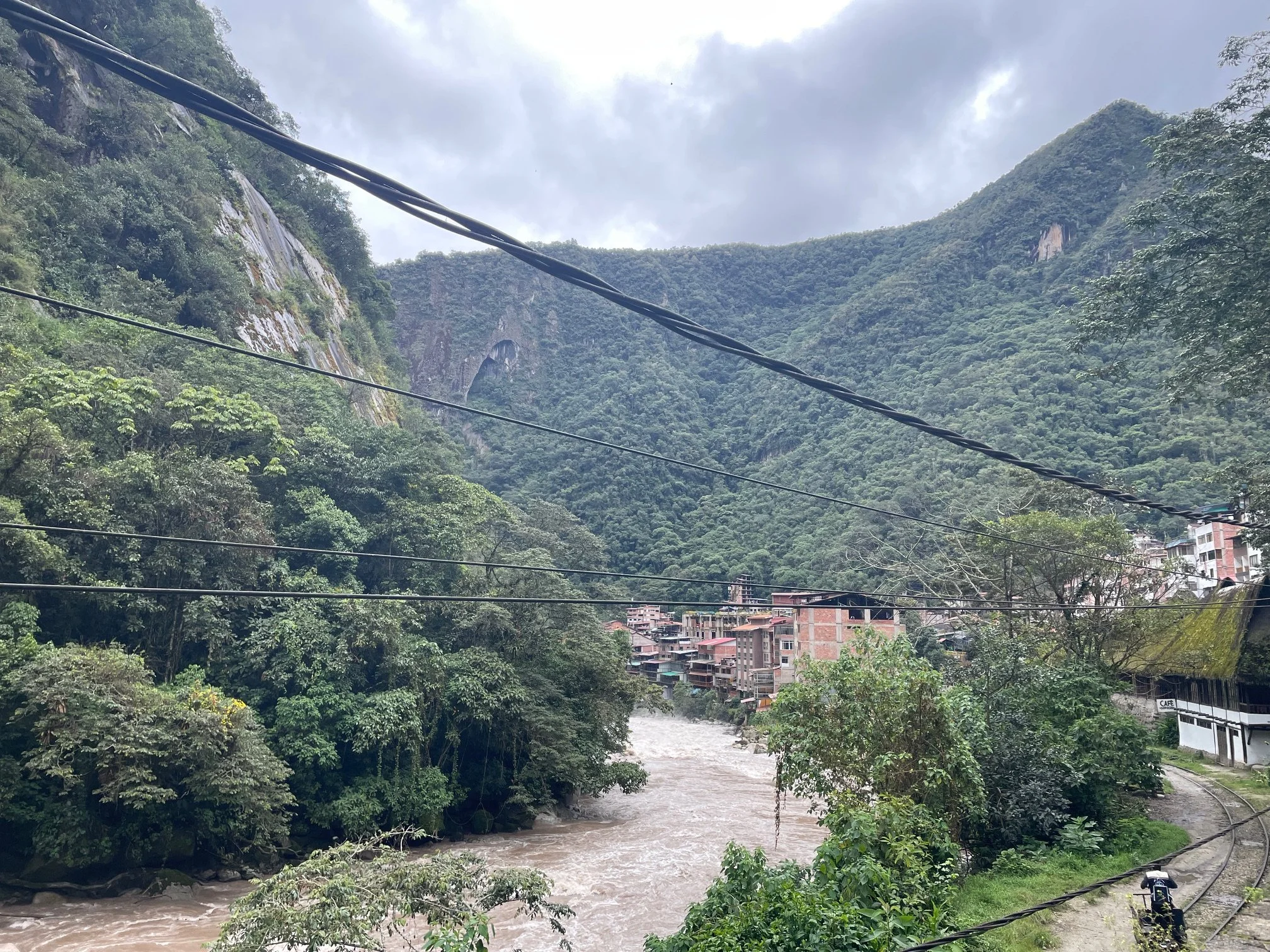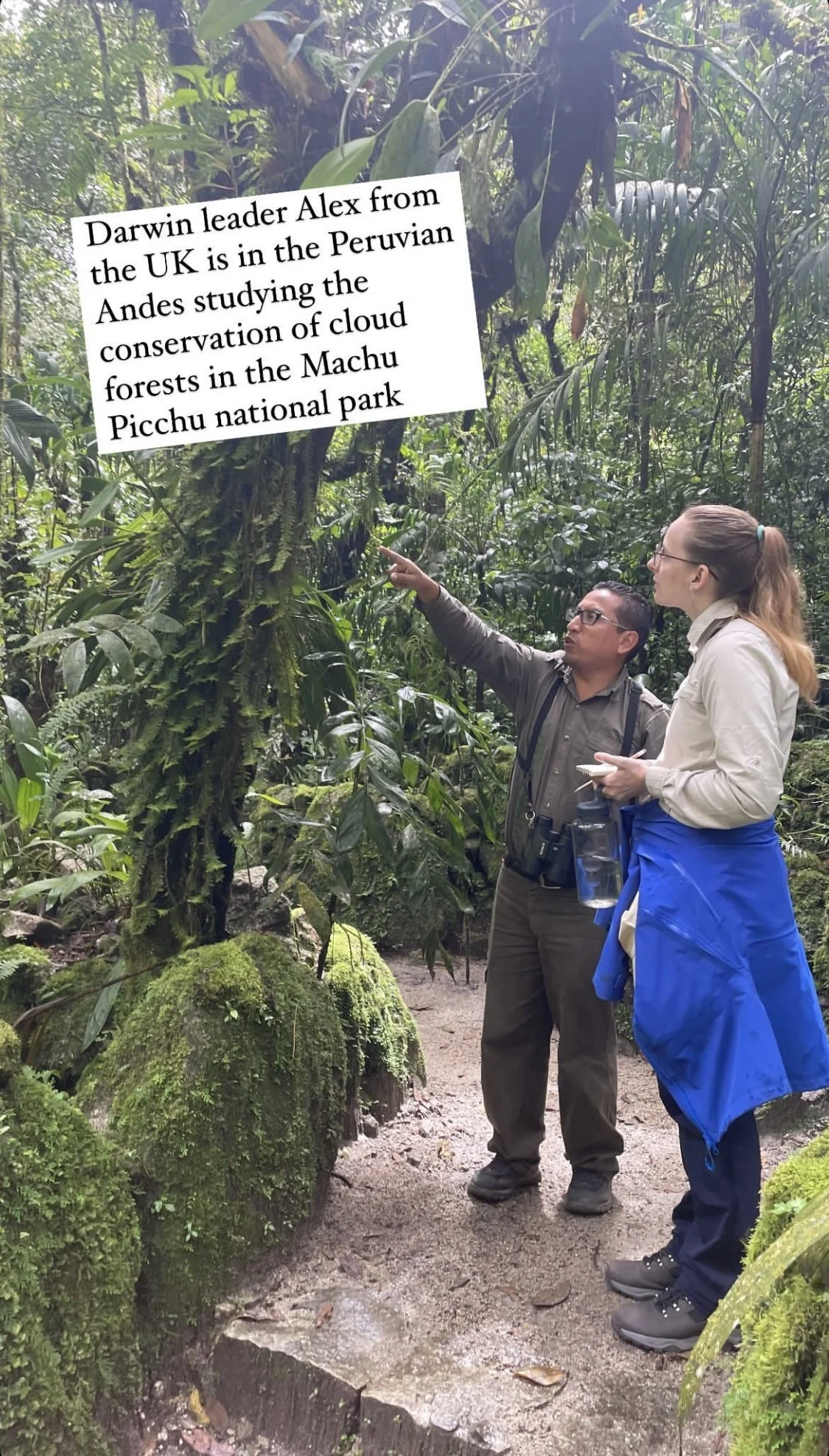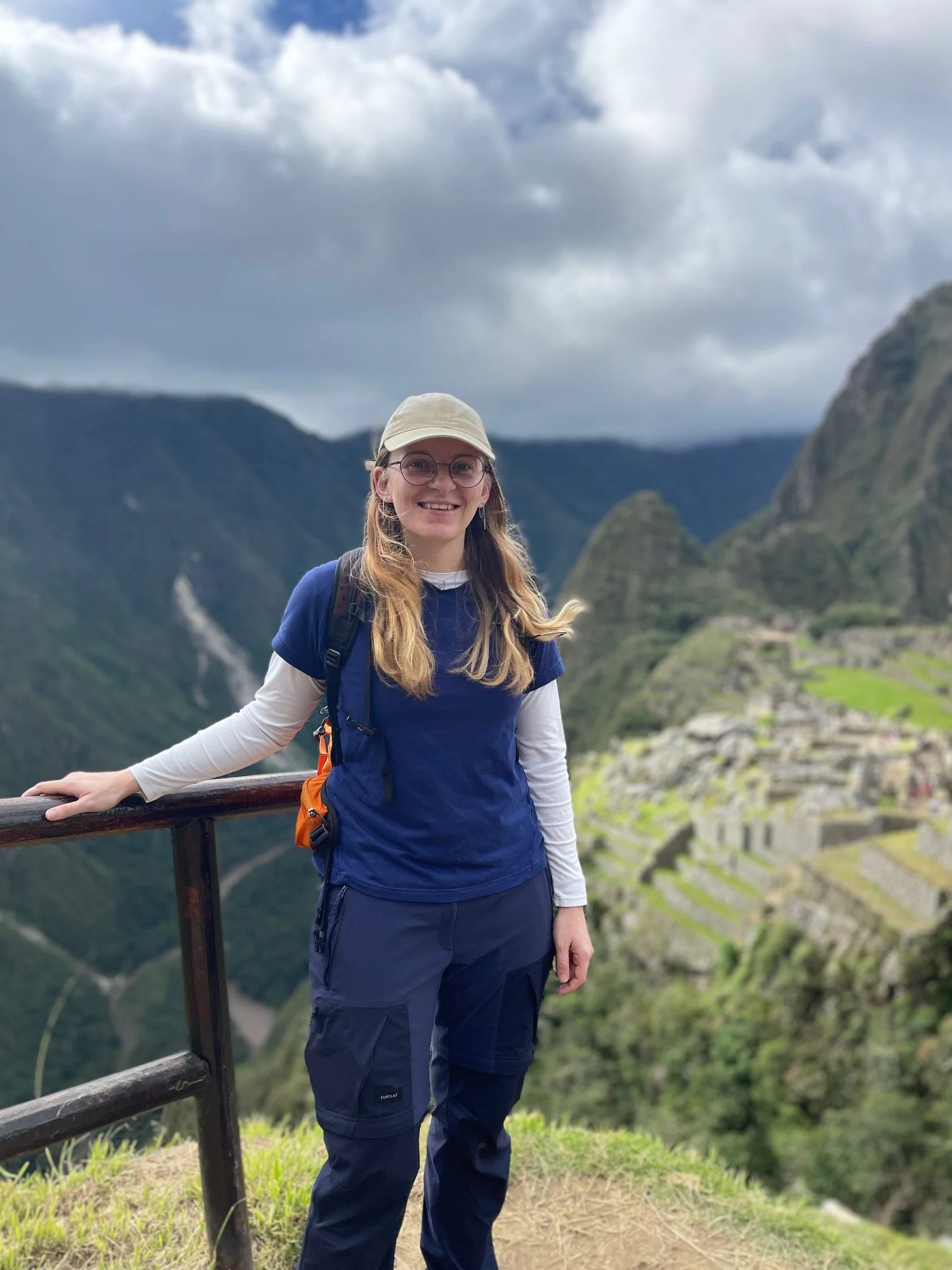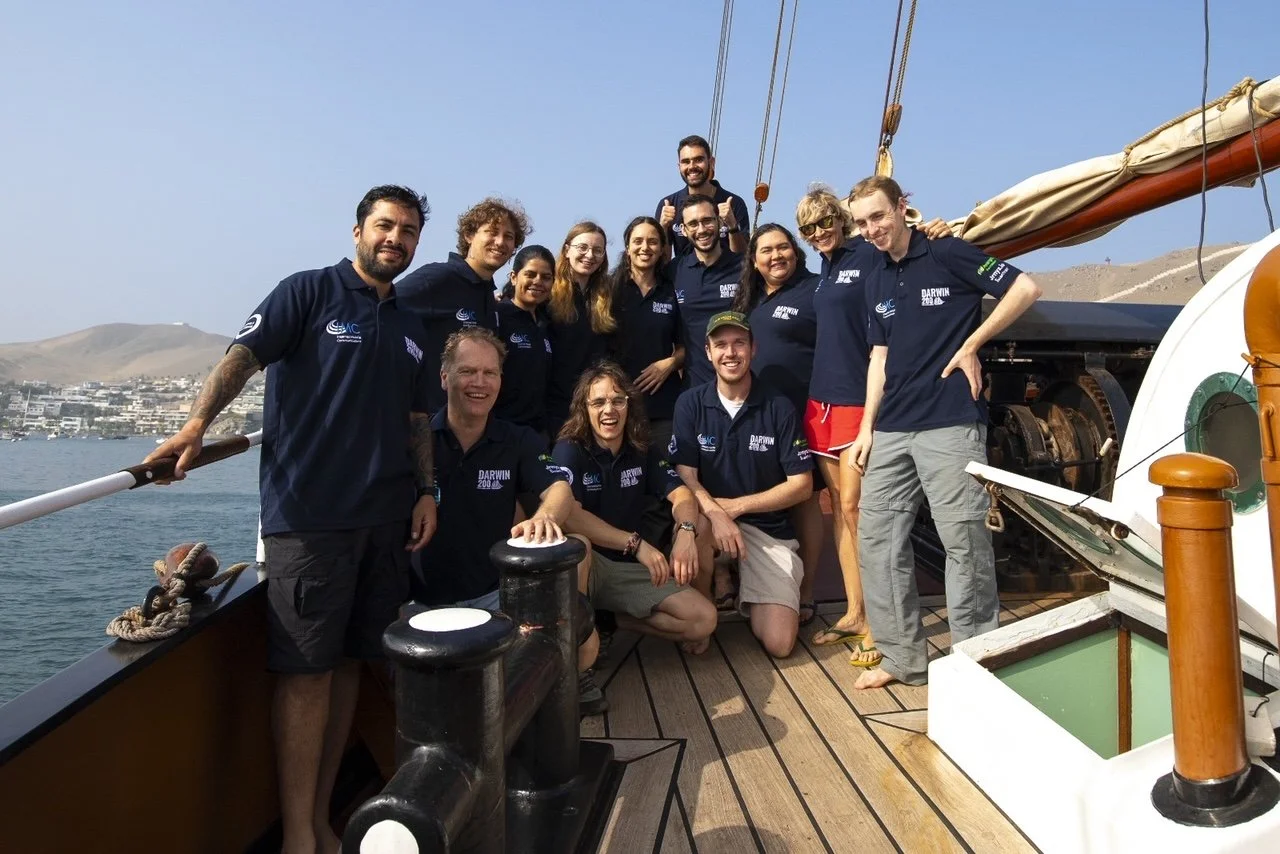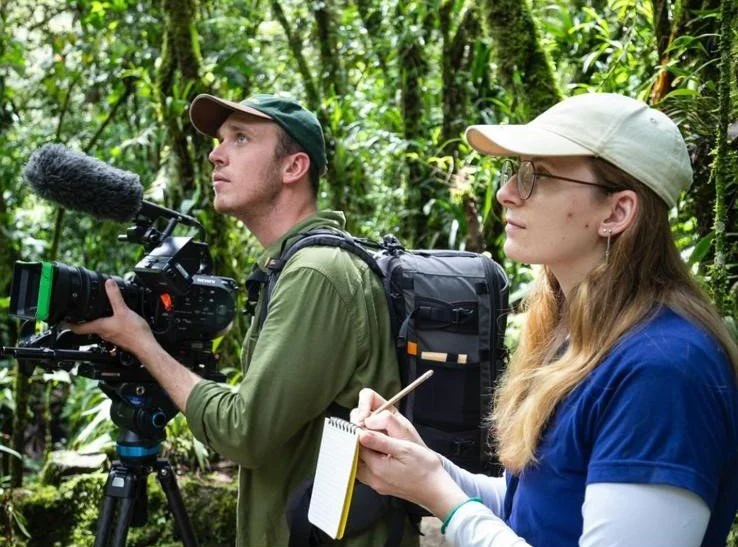Adventures in Peru - A Roots & Shoots member’s experience as a Darwin Leader
The Machu Picchu valley. Photo credit: Josh Clarke, Darwin 200
The Machu Picchu cloud forests are home to the world famous archeological ruins. Surrounding that sacred site is a fascinating world of natural diversity; cloud forests.
In March 2024, I was invited to participate in the Darwin 200 project as a Darwin Leader. I have been involved in leading a Roots & Shoots affiliated youth group for about 4 years now, and I cannot thank Jane Goodall’s Roots & Shoots enough for nominating me and for being the reference for my application to the project! Aside from my youth group volunteering work, I have a background in ecology research and community engagement, and currently work as a citizen science assistant at the Woodland Trust.
As a Darwin 200 leader, I had the opportunity to visit the Machu Picchu cloud forests for 1 week with aim of producing 3 films, 3 photo essays, and 3 written reports covering:
How has the environment/species concern changed since Darwin visited the location 200 years ago?
What Conservation efforts are currently being made to protect the environment/species concerned?
What more could be done to improve protection or restoration of the environment/species concerned?
My reports, images and films will soon be available on the Darwin Leaders website.
In the small area of cloud forest that I visited, owned and managed by the Inkaterra Asociacion, we saw many bright butterflies such as Diaethria euclides and amazingly diverse orchids, including the endangered Phragmipedium caudatum - we learned that the rangers at Inkaterra had to pollinate this species by hand, as it has very specialised pollinators that are now very rare, meaning this orchid is now rarely pollinated ‘in the wild’, and endangered as a result. We also saw many beautiful birds such as the Andean motmot (Momotus aequatorialis), chestnut-breasted (Boissonneaua matthewsii) and long-tailed (Aglaiocercus kingii) hummingbirds, and various tanager species.
Another beautiful bird species that we saw was the Andean Cock-of-the-rock (Rupicola peruvianus). It is endemic to the Andean cloud forests of South America and is the national bird of Peru. This species was the focus of my investigations.
The Andean Cock-of-the-rock (Rupicola peruvianus) is called so because it nests on overhanging rock faces. It is a large passerine bird of the cotinga family and has four subspecies and its closest relative is the Guianan cock-of-the-rock. You can read more about the species and the conservation efforts to protect it in the Machu Picchu valley in my Darwin 200 reports!
At the end of the week, each Darwin leader made their way to the historic tall ship, Oosterschelde, the ship is from the same era as the HMS Beagle that Darwin sailed on, and it is tracing the journey that Darwin took around the world in 1831–1836. It was on this journey, that his experiences and observations helped him develop the theory of evolution through natural selection. At the ship, we each delivered a short presentation where we shared what we had learned with the rest of the group. The ship was incredible!
What have I learned here that I will take away with me to my work in the UK?
Spending time with Inkaterra at their Machu Picchu Pueblo hotel has been my first experience of traveling to, and spending time, with another organisation with the sole purpose to learn from one another. It has given me confidence to keep on making connections with others, as in the environmental industry it is vital that we work together and collaborate so that we can make the world a better place.
My time at Inkaterra has also shown me how ecotourism can fund conservation work, one thing I was inspired by was the fact that they had trained their hotel staff in matters of forest ecology and field study skills. I would like to investigate how I can help the volunteers who work with the charity that I am a trustee for (Andover Trees United) to be trained like this, as I think it may help create a greater sense of guardianship over the little woodland that we manage together. I think it’s important that all volunteers and staff of an environmental organisation, whether they are rangers, administrators, social media workers or whatever, should all have an understanding of the ecosystem and natural world that they are working for!
Inkateera also uses citizen science to maintain an inventory of species of plants and animals that live in the hotel’s grounds. I think that’s a great way to connect their guests to the cloud forest. It helps with wildlife monitoring and also teaches guests the names of species. It’s important for people to learn the names of things because if we don’t know what something is, we are less likely to want to protect it! I have set up and led various citizen science ‘days’ or events at our woodland in Andover, but I think this kind of ongoing citizen science activity that people could participate in at any time would be super easy to replicate in the woodland that I work in at home.
I have also learned that there are passionate conservationists all over the world, we are all passionate about the same thing, the earth!, and all working hard to protect our natural ecosystems and resources. This gives me renewed hope for the future and has empowered me to continue fighting the fight against climate change and biodiversity loss. Imagine what we could do if we all came together to form a global network of scientists, campaigners, journalists, artists, businesses, ordinary people who care about our planet!
Group photo of the Darwin leaders and film makers in Peru. Photo: Darwin 200
Finally, I feel very honoured to have had this incredible opportunity and would love to use this as a stepping stone for further collaborative work with like-minded people. The Darwin leaders are 200 of the world’s most capable, young naturalists and conservationists, and I am looking forward to following their journeys and working with them and other like-minded individuals or organisations in the future. I also feel very proud that someone like me, from an area of high deprivation in the UK, has been recognised for my passion and hard work in the environmental sector. It’s a sector that is often seen as out of reach for people from disadvantaged backgrounds, but I really hope my experience proves to any young person like me that anything is possible if you really want to achieve it!
Alex Marshall, Darwin Leader, and Josh Clarke, wildlife photographer and filmmaker. Photo: Josh Clarke / Darwin 200
I would like to thank Jane Goodall’s Roots & Shoots, Andover Trees United, and the Darwin 200 project, for supporting and empowering young people like me to make a positive difference in the world!
